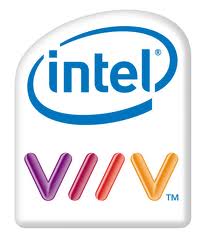Why does Intel want to get into the Internet TV game?

Intel has long been trying to break into your living room, with its last attempt via a system-on-a-chip that it hoped set-top-box manufacturers would embrace. Now the chip giant has apparently pivoted, and is rumored to be working on an Internet TV service that would be delivered via its own set-top box.

An IPTV service could be the Holy Grail for viewers who are tired of paying for cable or satellite TV packages, and would prefer to purchase channels a la carte, one reason Apple seems to be pursuing the idea. Unfortunately, there are a number of massive obstacles to getting such services to market.
The primary one, of course, is getting TV networks to go along for the ride. That requires not only lucrative deals for each one, but also interest from the networks in actually striking a deal. Apple is supposedly having difficulty brokering such deals, so why would it be any easier for a company with limited content experience like Intel to make agreements? (Though it couldn't be any less flexible than Apple in terms of negotiating tactics.)
Another major issue is that such service still require Internet access, and guess who provides that to most consumers? The same pay TV providers that Intel would presumably be competing with for viewers. As the Journal suggests, those providers could raise rates on Internet access if more people start using huge amounts of bandwidth watching Internet TV.
Intel may ultimately scrap this idea if such issues get too complicated, but it has apparently solicited "rate cards" from networks to determine the costs of making programming deals, and has hired a BBC exec to lead a secretive Intel Media group. It's a tough nut to crack, but given its cash and ambition, Intel can't be counted out just yet.
The bigger question may ultimately be: Would you be interested in an Intel Internet TV service? Let us know your thoughts below.